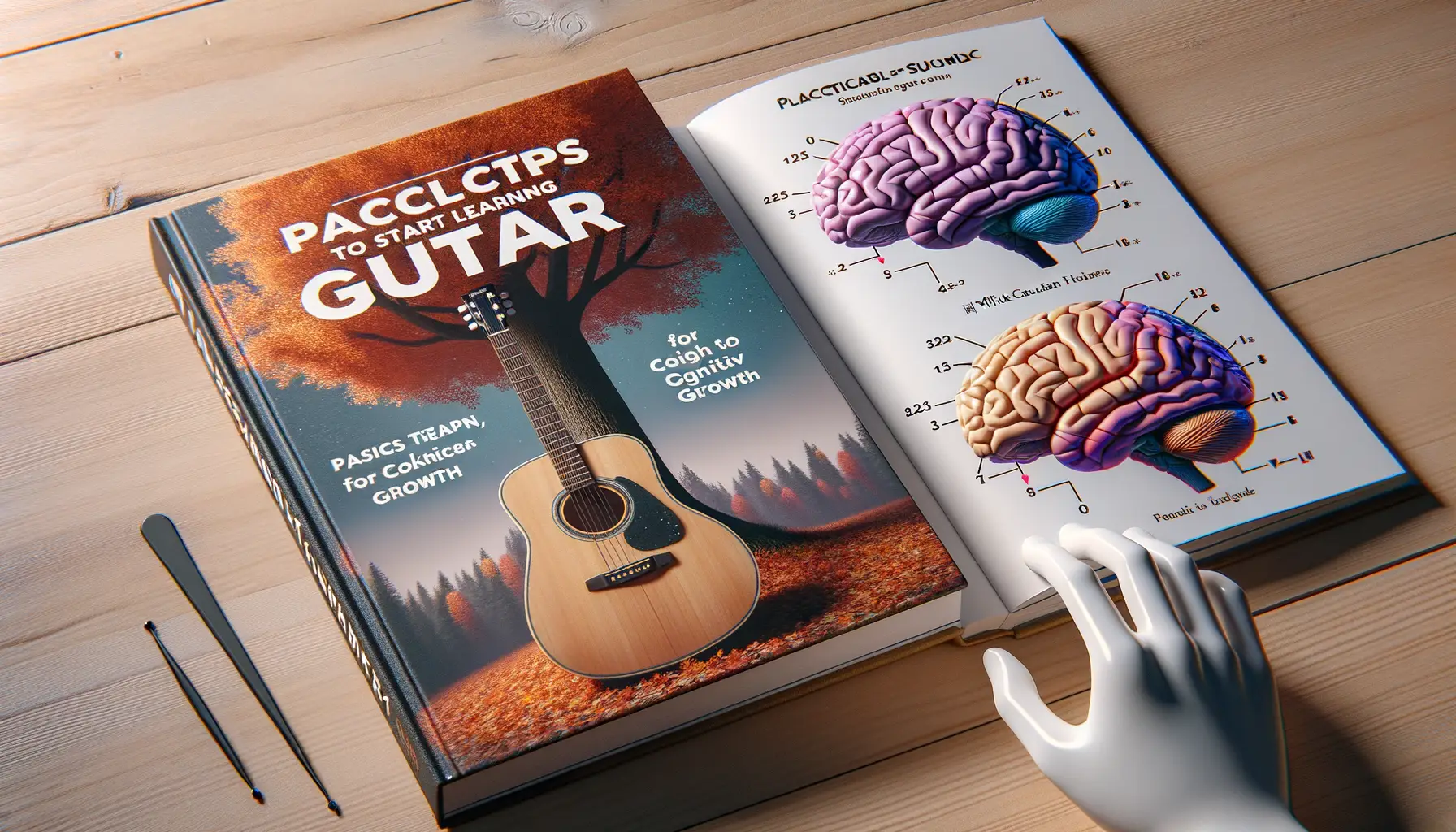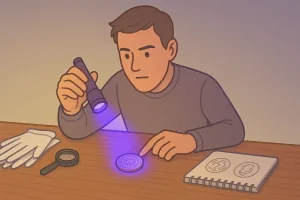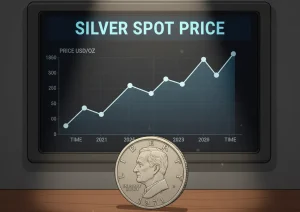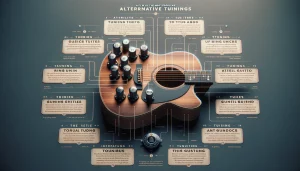How Learning Guitar Enhances Brain Function
Unlocking Cognitive Superpowers Through Guitar
Imagine your brain as this intricate, high-tech machine—learning guitar is like giving it a firmware upgrade! Strumming those strings doesn’t just make music; it awakens areas of your brain you didn’t know were snoozing. For starters, playing guitar lights up both hemispheres of the brain, forging new neural connections like a city building fresh highways during rush hour.
It’s not just about the science—it’s about real life. Picture this: your fingers slowly mastering chord shifts. Behind the scenes, your brain is multitasking like a pro! You’re decoding musical notes, translating them into physical movements, and keeping rhythm—all while planning the next step. That’s mental gymnastics in action.
- Problem-solving skills improve because you’re constantly figuring out patterns in melodies.
- Hand-eye coordination gets a major boost—it’s an orchestra of precision between sight and touch.
- Your brain’s plasticity skyrockets, making everyday learning smoother.
Beating Brain Fog With Creativity
Here’s the magic: learning guitar isn’t just memorization; it’s creativity on tap. As you experiment with riffs and melodies, your brain flexes its imaginative muscles. That moment when you play a chord progression that *just clicks*? It sparks dopamine release—a feel-good chemical cocktail fueling motivation and focus.
The Impact of Music on Memory and Concentration

How Music Unlocks Mental Clarity
Have you ever noticed how a simple melody can evoke a forgotten memory or sharpen your focus when you’re struggling to concentrate? Music doesn’t just sit in the background – it actively reshapes how our minds work. When you learn guitar, for example, you’re not just playing notes; you’re teaching your brain new ways to organize information and retrieve it effortlessly.
Think about it: mastering a song requires recalling chord progressions, strumming patterns, and timing. Each of these tasks demands coordination between your short-term memory (for immediate steps) and long-term memory (to retain skills over time). It’s like giving your brain a workout routine!
- Struggling to memorize names or lists? Practicing music fine-tunes those same faculties.
- Need laser-sharp focus? Playing a tricky solo forces you to zero in like nothing else.
But it’s more than memory – it’s mental clarity too. Ever have those “aha!” moments while playing? As your fingers glide across the strings, your mind aligns, silencing distractions. Guitar becomes not just an instrument, but a doorway to sharper thinking.
The Science of Sound: Why It Works
Here’s something fascinating: studies reveal that listening to or playing music releases dopamine, the “feel-good” chemical in your brain. This makes it easier to focus and retain information. Imagine the flow state you reach after practicing a song you love – that rush is your brain on dopamine.
Even better, rhythm engages areas like the prefrontal cortex, where decision-making and attention live. So while you’re perfecting “Blackbird” by The Beatles or riffing through “Sweet Child O’ Mine,” you’re essentially rewiring your brain to think faster and smarter. Isn’t it wild how a single instrument can transform your cognitive abilities?
Building Coordination and Fine Motor Skills Through Guitar Practice

Sharpening Precision Through Fingerwork
Picture this: your fingers glide across the strings, each movement deliberate, each note singing with clarity. This isn’t just music; it’s a workout for your hands and brain. Guitar practice is like choreography for your fingers, teaching them to dance with agility and control. Whether you’re plucking out a soulful melody or strumming a fiery rhythm, every motion demands a level of precision that transforms coordination into an art form.
Let’s talk about the magic of fine motor skill development. As you fret notes, your fingers navigate narrow spaces with pinpoint accuracy. Suddenly, tasks like typing, writing, or even threading a needle feel unexpectedly easier. Why? Because learning guitar hones those dexterous abilities in ways you didn’t see coming.
- Fretting trains your fingers to work independently, even under pressure.
- Strumming teaches fluidity and rhythmic timing—not just for your hand but for your entire arm.
- Switching chords builds lightning-fast reflexes over time, making once-awkward moves second nature.
The best part? Your brain is always in on the action, forming new neural pathways as it keeps pace with your growing coordination. It’s like building a bridge between creativity and control, string by string!
Emotional and Psychological Benefits of Playing the Guitar

Find Your Emotional Anchor Through Strumming
Have you ever had one of those days where your emotions feel like unruly waves in a stormy sea? Picking up a guitar can be your lifeboat to calm waters. The act of strumming those strings isn’t just about making music; it’s about channeling your emotions—joy, sadness, anger, excitement—into something tangible and beautiful.
Studies show that playing an instrument like the guitar activates areas of the brain linked to emotion regulation. But let’s set science aside for a moment. Picture this: after a draining day, your fingers start shaping a simple chord progression. Before you know it, frustration melts away, replaced by a rhythm that feels like it’s speaking directly to your soul. That’s the magic: a six-stringed therapist at your fingertips.
The Confidence Boost You Didn’t See Coming
When you master a tricky guitar solo or finally nail that elusive chord, there’s no feeling quite like it. Playing guitar builds self-assurance in ways few activities can.
- Creative Expression: It’s empowerment in its rawest form—letting your unique sound echo into the world.
- A Sense of Mastery: Whether it’s learning John Mayer’s riffs or composing your own melody, each success fuels personal growth.
- Connection: Strumming along at a campfire or jamming with friends deepens bonds like nothing else.
Each note played creates ripples not just in the air but within your very being. If that’s not emotional and psychological alchemy, what is?
Practical Steps to Start Learning Guitar for Cognitive Growth

Set the Stage with the Right Guitar
Taking your first step into the world of guitar is like embarking on a new adventure—exciting, a bit intimidating, but oh-so-rewarding. First things first, choose the right guitar. If you’re a beginner, an acoustic guitar might be your best companion; it’s straightforward and doesn’t require extra gear. But if you’ve always dreamed of rocking out on an electric, go for it! The key is finding one that feels comfortable in your hands and inspires you to play every day.
Oh, and don’t forget to tune it! A well-tuned guitar isn’t just easier on the ears—it will train your brain to recognize proper pitch. Trust me, this small ritual (even if frustrating at first) works wonders for fine-tuning your cognitive abilities.
Simple Steps to Jumpstart Your Journey
Here’s how you can make learning the guitar part of your daily rhythm:
- Pick a practice spot: Create a cozy corner where your guitar lives. Keeping it visible encourages you to pick it up often.
- Start small: Focus on the basics—like learning three chords or strumming a simple pattern. Small wins motivate big efforts.
- Follow a plan: Whether it’s YouTube tutorials, apps like Fender Play, or a local teacher, consistency is key.
Remember, even playing for just 10 minutes daily can spark neuronal fireworks, forging new pathways in your brain. Who knew strumming could be both fun and mind-expanding?






